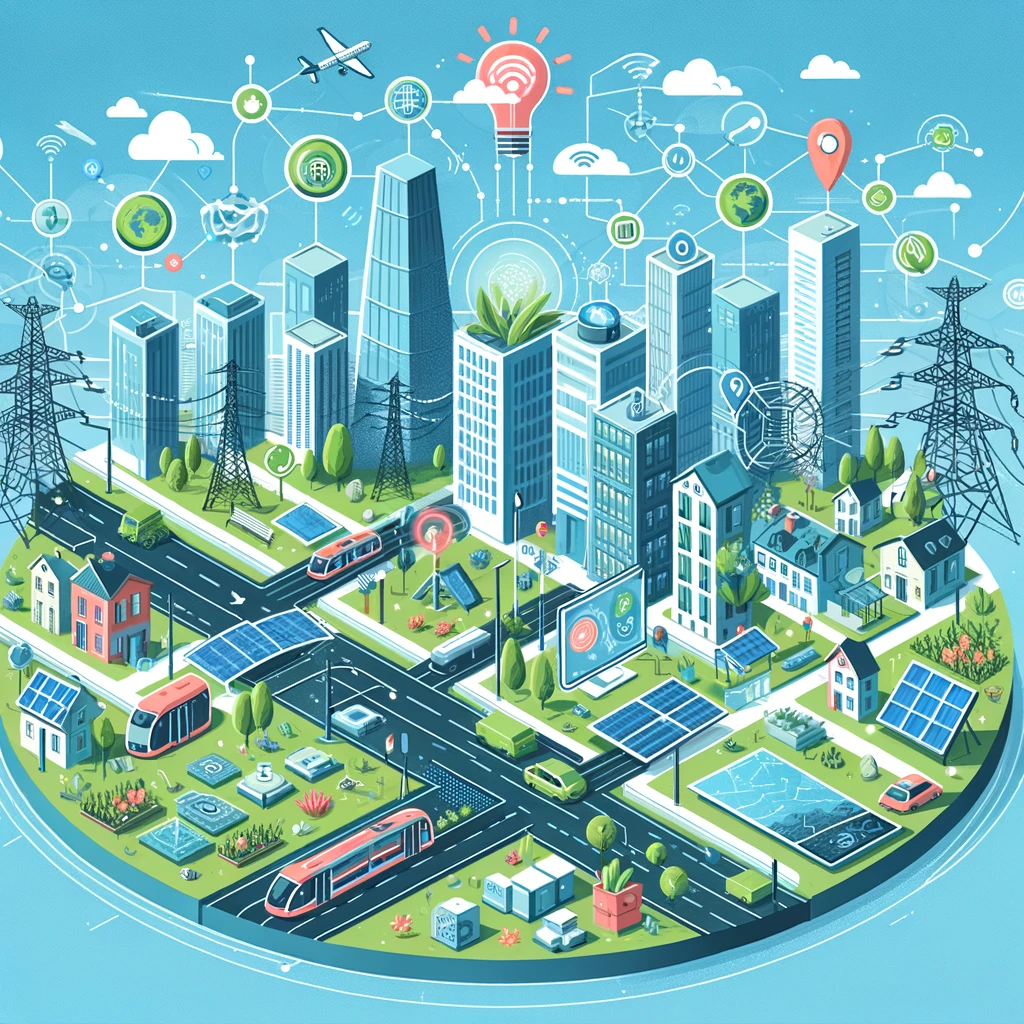The concept of smart cities is revolutionizing urban living by integrating technology and data to improve the efficiency, sustainability, and quality of life for residents. Smart cities leverage the Internet of Things (IoT), big data, and artificial intelligence (AI) to create more connected, responsive, and livable urban environments.
Key Features of Smart Cities
Smart Infrastructure
Smart cities deploy advanced infrastructure that includes sensors, connected devices, and automated systems. These technologies enable real-time monitoring and management of city resources, such as energy, water, and waste. For example, smart grids optimize energy distribution, reduce waste, and lower costs.
Efficient Transportation
Transportation is a critical aspect of urban living, and smart cities aim to make it more efficient and sustainable. Intelligent transportation systems (ITS) use data analytics to manage traffic flow, reduce congestion, and improve public transit services. Electric and autonomous vehicles are also integral to smart city transportation networks, reducing emissions and enhancing safety.
Sustainable Urban Planning
Sustainability is at the core of smart city initiatives. Urban planning integrates green spaces, renewable energy sources, and sustainable building practices. Smart waste management systems, such as automated waste collection and recycling programs, contribute to cleaner and more sustainable cities.
Enhanced Public Services
Smart cities use technology to improve public services, from healthcare to education. Telehealth services provide remote medical consultations, while smart classrooms enhance learning experiences through interactive technologies. These advancements make essential services more accessible and efficient.
Data-Driven Decision Making
Data is the backbone of smart cities. By collecting and analyzing data from various sources, city officials can make informed decisions that enhance urban living. Predictive analytics help anticipate and address issues before they escalate, leading to proactive and effective city management.
Benefits of Smart Cities
Improved Quality of Life
Smart cities aim to create environments where residents can live healthier, safer, and more productive lives. Enhanced public services, efficient transportation, and sustainable practices contribute to a higher quality of life.
Economic Growth
By fostering innovation and attracting businesses, smart cities can drive economic growth. The integration of technology creates new job opportunities and supports the development of a skilled workforce.
Environmental Sustainability
Smart cities are designed to minimize environmental impact. Renewable energy, efficient resource management, and sustainable urban planning reduce carbon footprints and promote greener living.
Challenges and Considerations
Privacy and Security
The extensive use of data in smart cities raises concerns about privacy and security. Ensuring that data is collected, stored, and used responsibly is crucial to maintaining public trust.
Infrastructure Costs
Implementing smart city technologies requires significant investment. Funding these projects can be challenging, especially for cities with limited budgets. Public-private partnerships and innovative financing models are essential to overcoming this barrier.
Digital Divide
Not all residents have equal access to technology. Addressing the digital divide is vital to ensuring that all citizens can benefit from smart city initiatives. Inclusive policies and programs are necessary to bridge this gap.
